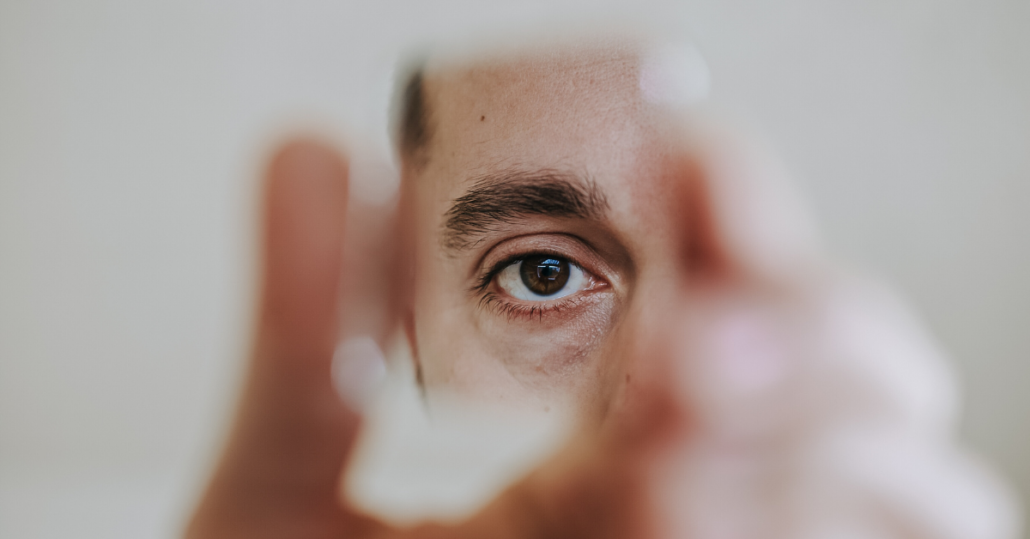What is Cyclobenzaprine/Flexeril?
Cyclobenzaprine and Alcohol are central nervous system depressants. Both work to slow down brain activity, which then slows down your heart and breathing rates. Both also can cause you to feel calm or sleepy. Cyclobenzaprine (Cyclobenzaprine hydrochloride), is sold under the brand name Flexeril.
Cyclobenzaprine is used short-term to treat muscle spasms. It is usually used along with rest and physical therapy. It works by helping to relax the muscles. It comes as a tablet and an extended-release capsule to take by mouth. The tablet is usually taken with or without food three times a day. The extended-release capsule is usually taken with or without food once a day.
Flexeril is not a narcotic drug or an opioid. It is not controlled under the Controlled Substances Act (CSA). However, since Flexeril has properties that suppress pain, people may overuse it to amplify those feelings.
The skeletal muscle relaxant cyclobenzaprine, also known as Amrix and Fexmid, was previously marketed under Flexeril. Muscle spasms can be treated with the prescription drug cyclobenzaprine, which should only be used for two to three weeks. Despite not being a restricted substance, the drug can be misused recreationally to intensify the effects of other CNS depressants like alcohol.
The recreational use of Flexeril results in drowsiness, relaxation, and a slight euphoric high occasionally. It can be used alone or with alcoholic beverages, barbiturates, benzodiazepines, or opioids. Overdose fatalities from cyclobenzaprine have been documented, notwithstanding their rarity.
Overdosing on Flexeril is possible and occasionally fatal, especially when mixed with other drugs like alcohol. If you believe someone has taken too much cyclobenzaprine, you should seek emergency medical assistance since overdose symptoms can worsen quickly. Drowsiness and a rapid pulse are the most typical symptoms of cyclobenzaprine overdose.
Skip To:
- What is Cyclobenzaprine/Flexeril?
- Flexeril
- Alcohol and Cyclobenzaprine
- Cyclobenzaprine and Alcohol interaction
- Muscle Relaxers and Alcohol
- What Are the Risks of Mixing Alcohol And Muscle Relaxants?
- Cyclobenzaprine 10 mg and Alcohol
- Cyclobenzaprine 5 mg and Alcohol
- What Does Cyclobenzaprine Abuse Look Like?
- side effects of Cyclobenzaprine and alcohol
- Treatment for Cyclobenzaprine and Alcohol Addiction
Learn More:
Get Help. Get Better. Get Your Life Back.
Searching for Accredited Drug & Alcohol Rehab Centers Near You? Or Mental Health Support?
Even if you have failed previously, relapsed, or are in a difficult crisis, we stand ready to support you. Our trusted behavioral health specialists will not give up on you. Call us when you feel ready or want someone to speak to about therapy alternatives to change your life. Even if we cannot assist you, we will lead you wherever you can get support. There is no obligation. Call our hotline today.
FREE Addiction Hotline – Call 24/7Alcohol and Cyclobenzaprine
It is not recommended to combine alcohol with cyclobenzaprine since doing so can be fatal. The central nervous system (CNS) is depressed by both drugs, and their combination intensifies the depressive effects that wouldn’t manifest if you took just one alone. These unintended and frequently severe adverse effects might adversely affect your health. Alcohol with Cyclobenzaprine can be dangerous and even deadly.
It is never wise to drink alcohol when taking a muscle relaxer. You could experience any adverse effects if you do, including some that could be dangerous. These are:
- Reduced motor control
- Memory problems
- The risk of seizures increased
- The risk of overdose increased
Alcohol might intensify the negative effects of cyclobenzaprine on the neurological system, including sleepiness, confusion, and dizziness. Additionally, a cognitive and judgmental impairment may be experienced by certain persons. While using cyclobenzaprine, alcohol should be avoided or used sparingly.


Get Your Life Back
Find Hope & Recovery. Get Safe Comfortable Detox, Addiction Rehab & Mental Health Dual Diagnosis High-Quality Care at the We Level Up Treatment Centers Network.
Hotline (877) 378-4154Cyclobenzaprine and Alcohol Interaction
Alcohol might intensify the negative effects of cyclobenzaprine on the neurological system, including sleepiness, confusion, and dizziness. Additionally, a cognitive and judgmental impairment may be experienced by certain persons. While using cyclobenzaprine, alcohol should be avoided or used sparingly. Use of cyclobenzaprine should not exceed the authorized dosage, and until you are familiar with how the medicine affects you, refrain from engaging in activities like driving or operating potentially dangerous machinery. If you have any questions or concerns, see your physician or pharmacist.
Alcohol can increase the nervous system’s side effects of cyclobenzaprine, such as dizziness, drowsiness, and difficulty concentrating. Some people may also experience impairment in thinking and judgment. It would help if you avoided or limited the use of alcohol while being treated with cyclobenzaprine.
Many treatment options are available if you or a loved one is struggling with alcohol or cyclobenzaprine abuse. Speak to a medical or healthcare professional to find help.

Comfortable Facilities & Amenities
High-Quality Addiction & Mental Health Rehabilitation Treatment
Rehab Centers TourRenowned Addiction Centers. Serene Private Facilities. Inpatient rehab programs vary.
Addiction Helpline (877) 378-4154Proven recovery success experience, backed by a Team w/ History of:
15+
Years of Unified Experience
100s
5-Star Reviews Across Our Centers
10K
Recovery Success Stories Across Our Network
- Low Patient to Therapist Ratio
- Onsite Medical Detox Center
- Comprehensive Dual-Diagnosis Treatment
- Complimentary Family & Alumni Programs
- Coaching, Recovery & Personal Development Events
Muscle Relaxers and Alcohol
Both muscle relaxers and alcohol are potentially addictive substances. Long-term use of either or both may increase your risk of developing an addiction. Generally, muscle relaxers and alcohol don’t mix. But there is one muscle relaxer called baclofen that some experts believe might help with alcohol withdrawal. Alcohol withdrawal is a condition that occurs when a person who’s been drinking heavily or for a prolonged period stops drinking alcohol.
Symptoms can be potentially serious and include things like:
- Tremors
- Irritability
- Sweating
- Elevated heart rate
- Quick breathing
- Increased blood pressure
- Nausea and vomiting
- Trouble sleeping
- Nightmares
- Hallucinations
- Seizures
Muscle relaxers and alcohol can have dangerous consequences. Alcohol can increase the chances of harmful side effects from muscle relaxers. Mixing the two can also lead to impaired motor skills, cognitive function, and memory problems.
What are the Risks of Mixing Alcohol and Muscle Relaxants?
Equivalent to muscle relaxers, alcohol is a depressant. Depressants are implications that slow down the central nervous system, which both muscle relaxers and alcohol do. When muscle relaxers and alcohol are mixed, they stretch each other’s effects.
Despite being consumed at events and socially, alcohol is a depressant. The outcomes of alcohol mirror many of the side effects of muscle relaxers. The side effects that alcohol causes include the following:
- Abdominal pain, nausea, and vomiting
- Altered vision
- Depression and anxiety
- Confusion and inability to think clearly
- Dizziness, problems with balance, and trouble walking
- Impaired judgment and poor decision-making skills
- Motor skill impairment
- Poor memory and trouble concentrating
When muscle relaxers are mixed with alcohol, the chances of experiencing these side effects greatly increase. Additionally, when muscle relaxers and alcohol are mixed, the effects of each substance are intensified. This can be incredibly dangerous, leading to serious health concerns like respiratory depression and death.
People may accidentally mix cyclobenzaprine and alcohol when using the medication as prescribed. Conversely, some people intentionally mix Flexeril with other substances to enhance the effects of both substances.
Alcohol and cyclobenzaprine together have the potential to be fatal. Flexeril and alcohol depress the central nervous system, and their combined effects may be stronger. This may lead to symptoms like extreme sedation or sleepiness and raise the possibility of an accident.
What are the Long-term Effects of Muscle Relaxers?
Muscle relaxers and alcohol abuse can have both short- and long-term harmful consequences. Combining alcohol with muscle relaxers can cause gastrointestinal issues, liver damage, and renal damage. Seizures and comas can result from combining alcohol with muscle relaxants. To avoid these possibly catastrophic outcomes, getting treatment as soon as possible is critical if you or someone you know misuses muscle relaxants.
Cyclobenzaprine 10 mg and Alcohol
Your body’s muscles can be helped to relax with the use of cyclobenzaprine 10 mg. It aids in easing the pain, stiffness, and discomfort brought on by muscular injuries such as sprains or strains.
Cyclobenzaprine 5 mg and Alcohol
The dosage for immediate-release cyclobenzaprine is 5 to 10 mg, taken three times a day; for extended-release cyclobenzaprine, it is 15 to 30 mg once daily. There is also a 10 mg dosage of cyclobenzaprine. The maximum daily dose for each type is 30 mg administered during 24 hours.
World-class, Accredited, 5-Star Reviewed, Effective Addiction & Mental Health Programs. Complete Behavioral Health Inpatient Rehab, Detox plus Co-occuring Disorders Therapy.
CALL (877) 378-4154End the Addiction Pain. End the Emotional Rollercoaster. Get Your Life Back. Start Drug, Alcohol & Dual Diagnosis Mental Health Treatment Now. Get Free No-obligation Guidance by Substance Abuse Specialists Who Understand Addiction & Mental Health Recovery & Know How to Help.
What Does Cyclobenzaprine Abuse Look Like?
Chest discomfort, hallucinations, vomiting, a fast pulse, slurred speech, trouble breathing, and excessive sleepiness are all indications of an overdose. When Cyclobenzaprine is mixed with other medicines, notably alcohol or Benzodiazepines, the danger of overdose is considerably enhanced.
Taking Cyclobenzaprine can improve sleep, motor skills, and energy levels in patients experiencing severe muscle pain. In addition to these benefits, the medication can produce various negative and potentially harmful effects. These side effects can range from mild to severe and include any of the following:
- Drowsiness
- Dry mouth
- Fatigue
- Headaches
- Dizziness
- Nausea
- Constipation
- Blurred vision
- Confusion
- Acid reflux
- Abdominal pain
- Fever
- Nervousness
- Urination problems
Overdose is yet another possible adverse effect of using too much of the medication Flexeril. Due to Flexeril’s calming properties, many continue abusing it even though it doesn’t provide the euphoric high that many other drugs do. Many will raise dosages to intensify those benefits. A Flexeril overdose can result in serious health issues, including cardiac arrest, dangerously low blood pressure, and seizures. Depression of the central nervous system, seizures, heart attacks, and even demise might happen. Chest discomfort, hallucinations, vomiting, a fast pulse, slurred speech, trouble breathing, and excessive sleepiness are all indications of an overdose.
Side effects of Cyclobenzaprine and Alcohol
If you’ve already mixed muscle relaxants and alcohol, stop drinking immediately. To err on the side of caution, seeing a healthcare professional as soon as possible is best, especially if you’ve had more than one drink or don’t drink often.
Remember, alcohol can intensify the effects of muscle relaxers, and combining the two can lead to an increased risk of overdose.
Mixing Cyclobenzaprine and Alcohol can cause sedation or severe drowsiness. The risk of getting into an accident also increases while in this state.
Mixing Cyclobenzaprine and Alcohol may lead to a cyclobenzaprine overdose, which can cause seizures, dangerously low blood pressure, and cardiac arrest. In some cases, extreme CNS depression leads to death.
Muscle relaxers have a depressant effect on your central nervous system. Alcohol has a similar effect, so mixing the two can intensify these effects.
In addition, Mixing Cyclobenzaprine and Alcohol can also interact with muscle relaxers. If you’re prescribed a muscle relaxer, let your doctor or pharmacist know about any other medications you are taking.

Treatment for Cyclobenzaprine and Alcohol Addiction
Alcohol addiction treatment can be received together with cyclobenzaprine abuse treatment or independently. However, it is often preferable to treat them all at once. Whatever approach is taken, it should be comprehensive, personalized for each individual, and carried out under the guidance of a medical practitioner.
Many people have a big question about Cyclobenzaprine: whether it can lead to an addiction. Cyclobenzaprine may be addictive for some people. It’s rare for people to report a Flexeril addiction, but it is possible because the drug affects brain neurotransmitters. Flexeril is a mild central nervous system (CNS) depressant. Other CNS depressants, for example, include benzodiazepines, alcohol, and opioid pain medications. Someone might abuse Cyclobenzaprine by taking high doses to achieve the same psychoactive effects of other CNS depressants. If a person felt that they were addicted to Flexeril, they could greatly benefit from treatment.
Medical detoxification followed by group treatment, such as a 12-step program or another type of psychological counseling, is frequently used to address physical alcohol dependency. Treatment for cyclobenzaprine addiction is more likely to include significant psychological involvement. Alcohol is more physically addicting than this drug.
Regardless of the drug being misused, it is usually better to treat the behavioral and emotional elements of addiction with the following:
- Psychological treatments
- Group sessions s
- Sessions of individual psychotherapy
These treatments frequently enhance coping skills and mental health, increasing the likelihood of a full recovery. Despite not being a regulated drug, cyclobenzaprine can nevertheless be misused. Furthermore, if a person stops using the medication, it may result in withdrawal symptoms. Therapy would be available if you or a loved one had a problem with cyclobenzaprine. Several treatment alternatives are available if you or a loved one is battling alcohol or cyclobenzaprine misuse. To get assistance, speak with a physician or healthcare professional.
Alcoholism Treatment
For alcoholics taking Cyclobenzaprine and Alcohol, We Level Up NJ offers a comprehensive plan that includes evidence-based therapies, like cognitive behavioral therapy, which is essential for recovery. Some persons with a substance use disorder may be eligible for treatment at a specialist institution like ours, depending on how badly their Sudafed addiction has affected them.
We employ highly skilled addiction specialists who have undergone training to provide clients with the motivation and resources they badly need to stop consuming alcohol and Sudafed and sustain long-term health and sobriety. We provide diagnostic treatment programs for people with these diseases and co-occurring mental health issues.
If you are facing a Cyclobenzaprine and Alcohol addiction, get in touch with us immediately to discuss your treatment options and find out how we can help you as you begin your recovery journey. We’ll be by your side the entire time.
We Level Up NJ provides proper care with round-the-clock medical staff to assist your recovery through our medically-assisted detox program. Reclaim your life; call us to speak with one of our treatment specialists. Our counselors know what you are going through and will answer any of your questions.

Experience Transformative Recovery at the We Level Up Treatment Center.
See our authentic success stories. Get inspired. Get the help you deserve.



Start a New Life
Begin with a free call to an addiction & behavioral health treatment advisor. Learn more about our dual-diagnosis programs. The We Level Up treatment center network delivers various recovery programs at each treatment facility. Call to learn more.
- Personalized Care
- Caring Accountable Staff
- Comfortable Amenities
- Licensed & Accredited
- Renowned w/ 5-Star Reviews